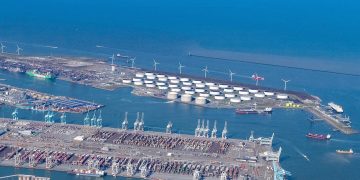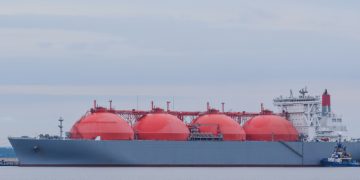The IMO Sub-Committee on Ship Design and Construction (SDC 8), which met in remote session 17-21 January 2022, began its work to review the 2014 Guidelines for the reduction of underwater noise from commercial shipping.
The guidelines focus on primary sources of underwater noise, namely on propellers, hull design, onboard machinery, and various operational and maintenance recommendations such as hull cleaning.
The review has been initiated after the issue was raised at the Marine Environment Protection Committee (MEPC). The international community recognizes that underwater-radiated noise from ships may have both short and long-term negative consequences on marine life, especially marine mammals.
The aim of the review is to provide updated recommendations based on the latest developments in ship design and technology and to address the barriers to their uptake in an effort towards a significant and measurable reduction of underwater-radiated noise from ships.
In fact, a working group discussed a number of submitted documents and developed a work plan and terms of reference for a correspondence group, which were agreed by the Sub-Committee.
The correspondence group is tasked with, among others:
- Enabling engagement of Inuit and other indigenous communities and the incorporation of Indigenous Knowledge;
- Identifying comparable and common means of measuring, analysing and reporting of underwater radiated noise emissions from ships;
- Identifying actions to further prevent and reduce underwater noise from ships, including options to integrate new and advancing technologies and/or vessel design solutions taking into account geographical characteristics;
- Considering the impact and interrelation of the proposed actions in the context of achieving other regulatory goals;
- Amending the 2014 Guidelines;
- Considering ways to promote the work of the Organization to increase the awareness, the uptake and implementation of the Guidelines and identifying the most appropriate tools to do this;
- Identifying areas that require further assessment and research;
- Considering the next steps;
- Maintaining and update a list of reports and documents provided in a submission to the Sub-Committee to produce a new Compendium on Underwater Noise from Commercial Shipping.
The work plan envisages that recommendations for the next steps to be undertaken to establish international solutions for the reduction of underwater noise could be submitted to the Marine Environment Protection Committee (MEPC 80) in 2023.
The Sub-Committee was also updated on a new project bid to the Global Environment Facility by the Secretariat’s Department for Partnerships and Projects (DPP) to seek funding for a project (“Global Partnership for Mitigation of Underwater Noise from Shipping (GloNoise Partnership)”), with the overall objective to establish a global stakeholders’ partnership, with a strong developing countries’ focus, in order to deal with underwater noise from shipping.



























































